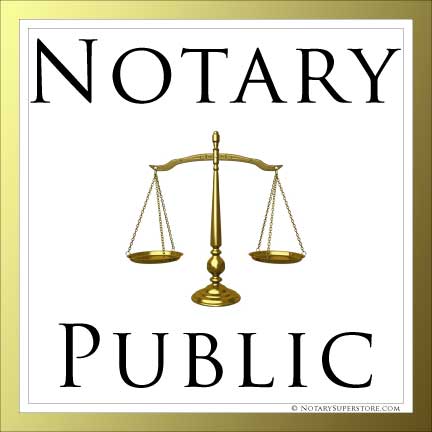DIRCO Laws Demystified: A Guide to Diplomatic Procedure
Wiki Article
Demystifying Notarial Job: Simplifying the Duty and Relevance of Notaries
In the detailed internet of lawful documentation and confirmation, notaries stand as columns of guarantee and authenticity. Their role, frequently shrouded in mystery for lots of, lugs significant weight in ensuring the legitimacy and stability of vital files. As guardians of legality and reality, notaries play an essential part in our culture, yet their job is not always fully understood. By untangling the intricacies dropping and surrounding notarial methods light on the relevance of their acts, a clearer understanding arises of the crucial role notaries play in promoting the material of lawful and legal arrangements.The History of Notarial Work
Just how did notarial job evolve over time to end up being an integral part of lawful and service purchases? The history of notarial work days back to ancient people, where scribes played an important role in taping essential details and verifying documents. As cultures advanced, the need for an extra formalized system to guarantee the validity of contracts developed. This resulted in the growth of notaries, individuals assigned by the state to function as impartial witnesses in legal issues.
Throughout the Middle Ages, notaries acquired prominence in Europe, with their functions broadening to consist of composing lawful papers, licensing signatures, and preserving records. The rise of worldwide trade further emphasized the relevance of notarial job in confirming contracts and arrangements across boundaries.
In the modern period, notaries remain to play an essential role in legal and company transactions by validating identifications, verifying the credibility of papers, and stopping scams. Their duty in certifying the validity of arrangements adds a layer of safety and security and trust to the ever-evolving landscape of business and legislation.

Duties and Responsibilities of Notaries
The historical evolution of notarial work from old civilizations to the contemporary era has formed the distinct responsibilities and obligations that notaries maintain in legal and business purchases today. Notaries play an important role in verifying the authenticity of documents and the identification of signatories. Among their main obligations is to witness the signing of important papers, such as contracts, deeds, and wills, to make certain that all parties are participating in arrangements intentionally and willingly. Notaries also verify that signatures are of sound mind and not under duress or coercion.Moreover, notaries are charged with providing affirmations and vows, which are critical in lawful procedures and the implementation of affidavits. They accredit copies of original documents, giving assurance to institutions that the duplicates are true reproductions of the originals. Notaries should preserve exact records of all purchases they oversee to guarantee openness and responsibility. On the whole, the tasks and responsibilities of notaries are necessary in protecting the stability and legitimacy of numerous files and deals.
Notarial Certificates and Signatures
Exemplifying thorough attention to information, notarial certifications and trademarks act as important components in verifying the authenticity of lawful papers. Notarial certificates generally have critical info such as the day of registration, the names of the signatures, a summary of the file, and the notary's official seal. These certificates give a clear document of the notarial act, ensuring that the record can be conveniently recognized and traced back to the notary that supervised the procedure.Signatures play an essential role in notarial work, as they represent the agreement and consent of the celebrations included. Notaries thoroughly witness the signing of documents to validate the identity of the notaries and verify that they are signing of their very own complimentary will. By affixing their main seal and signature to the document, notaries license that the required treatments have actually been complied with which the record is enforceable and valid.
In significance, notarial certificates and signatures are the trademark of credibility in lawful transactions, supplying assurance to all events included that the papers are genuine and binding.
Relevance of Notarial Acts

Registration Refine Clarified
The notarization procedure commonly starts with the individual offering the record to a notary public. Once the identity is confirmed, the notary guarantees that the private signing the file does so voluntarily and without any type of browbeating.
Verdict

Notarial certificates typically have vital info such as the date of notarization, the names of the notaries, a summary of the paper, and the notary's official seal. These certifications give a clear record of the notarial act, ensuring that the file can be quickly identified and mapped back to the notary that looked after the process.
By fastening their official seal and trademark to the document, notaries accredit that the necessary treatments have actually been followed and that the file is enforceable and legitimate.
By confirming the identification of the notaries, verifying their determination to enter right into the arrangement, and accrediting the date and area of the signing, notaries play a crucial role in supporting the credibility of lawful records.After the paper is authorized, the notary will certainly affix their official seal or stamp onto the file.
Report this wiki page